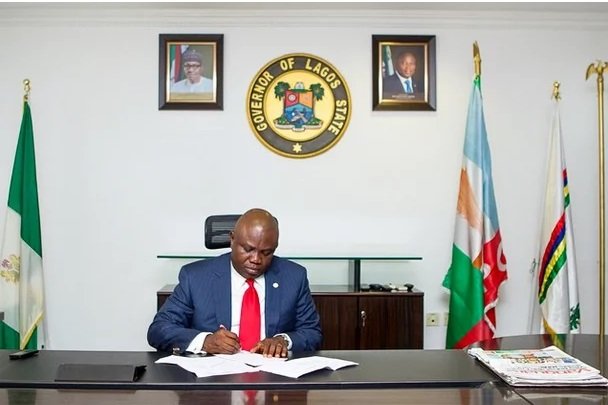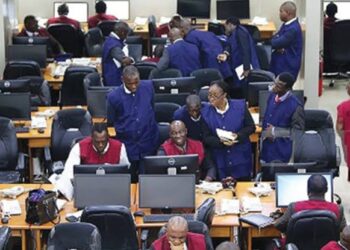Nairametrics| Lagos State is one of the few states in the country that earns significantly more from its Internally Generated Revenue (IGR) than FAAC allocations. The State also prides itself as the commercial capital of the country. Every major business in the country either has its head office or a major branch in Lagos. That’s probably the only good thing about doing business in Lagos going by the recent actions of the State against businesses and more disparagingly, the poor inhabitants of the state. The actions are sometimes executed suddenly, without due process and more often in contravention of the law. This behaviour did not just start today.
During the 1990’s, the state embarked on a demolition exercise at Maroko. The the military administration of General Raji Rasaki, said the land which was dominated by low-income workers and migrants from other states, was below sea level, and under developed. The government proceeded to forcefully evict them. Today, the area is called Oniru estate, with barely any of the original settlers resettled.
About seven years ago, the immediate past Governor of Lagos State, Babatunde Fashola ordered the demolition of shops in Oshodi, Lagos State. Ambode followed suit with his own demolition of shops in another section of the popular Oshodi market. No Governor probably comes close to Fashola. From demolishing of Mile 12 market to Ladipo to Olodi Apapa, his record is a morale booster to his successor. And Ambode is surely following in his footsteps.
In September 2016, government again demolished a row of shops in Ikoyi, among which was a Nuli Juice outlet, for being illegal structures. Parties that executed the demolition, prevented the shop owners from removing their property. A similar exercise was carried a few days ago at Otodo-Gbame, a water front community in Lekki, where settlers were evicted despite a court order preventing that. The Lagos State government said it did so for environmental reasons.
The government in another gestapo fashion recently came up with a policy on the drilling of boreholes by stipulating a fine of N500,000 or confiscation of the equipment used for drilling a borehole without permission.
The law is especially targeted at commercial users. Ironically, many parts of the State do not have running water. Had the state lived up to its duties, there would have been no need for individuals and companies to resort to self-help.
Further compounding issues for small businesses is the recent ban on live music at beer parlours, restaurants and other food outlets, except they obtain a permit. Failure to adhere to this directive will lead to a fine of N500,000. This is another example of a policy aimed at crippling small businesses in the state. How many small businesses in the state would be able to afford the permit? Did the government consult with relevant stakeholders before imposing an immediate ban?
The government explains its quest to beautify Lagos and restore sanity to our roads and way if life is the reason for some of these actions. It’s easy to see sense in what they intend to achieve just that all you need to have sometimes is a common sense approach to issues as sensitive as a state induced disruption legal business activities. It’s bad optics no matter the lofty objectives. The economic effects are even worse to comprehend.
Policies like these lead to an increase in the cost of doing business in Lagos State not to mention the plethora of formal and informal taxes and levies already being paid by businesses in the State.
Lagosians in general also bear the brunt, through increase in cost of goods and services. Small and Medium Scale Entreprises (SMES) may decide to downscale or shut down. The job losses lead to a drop in revenue for the government and an increase in criminal activities.
The state is gradually turning into one that’s not favourable for businesses, despite its huge population and potentials.Hisoty so often repeats itself and in Lagos State, a history of antagonism to small businesses and poor people have a home.

















